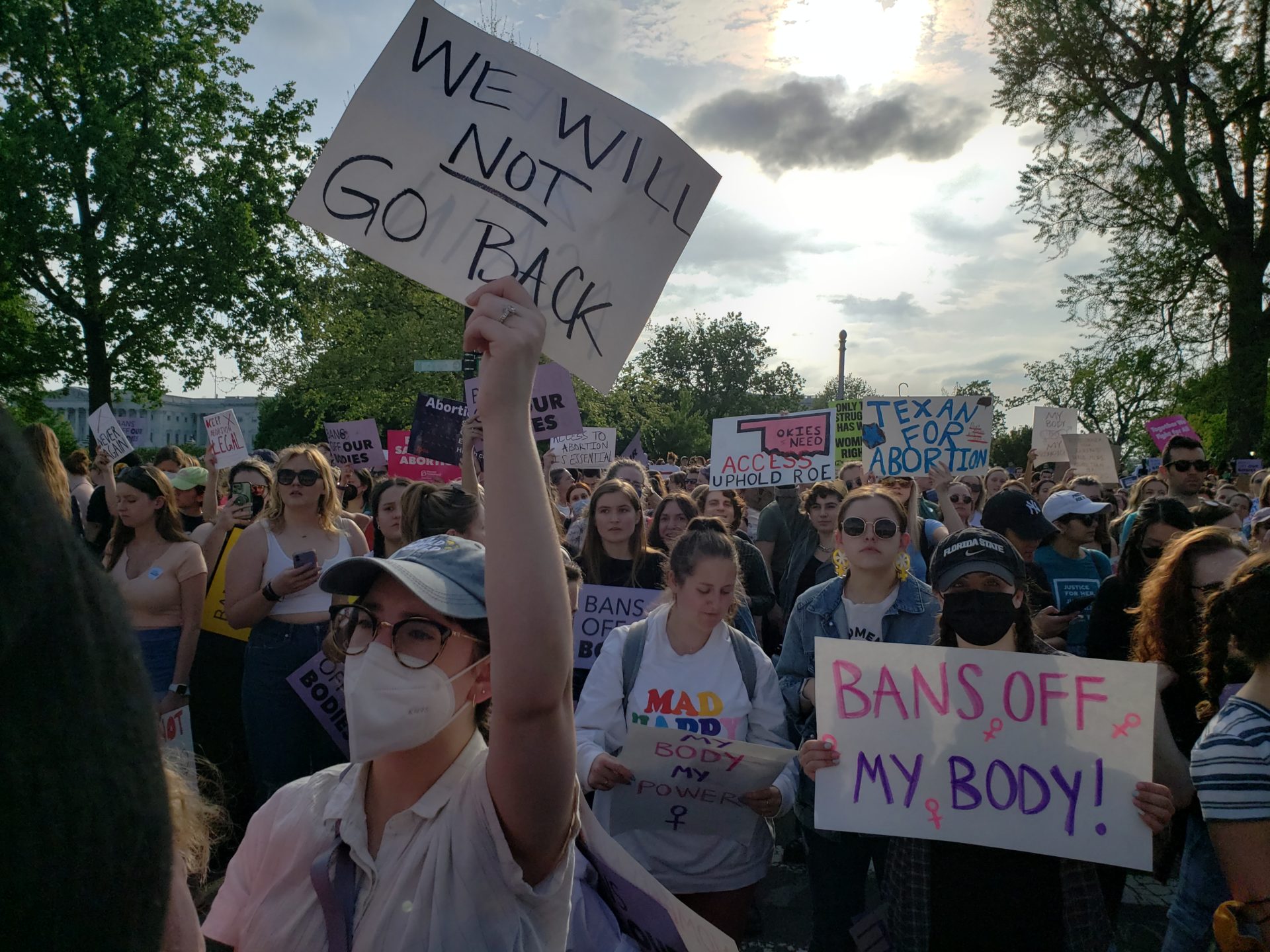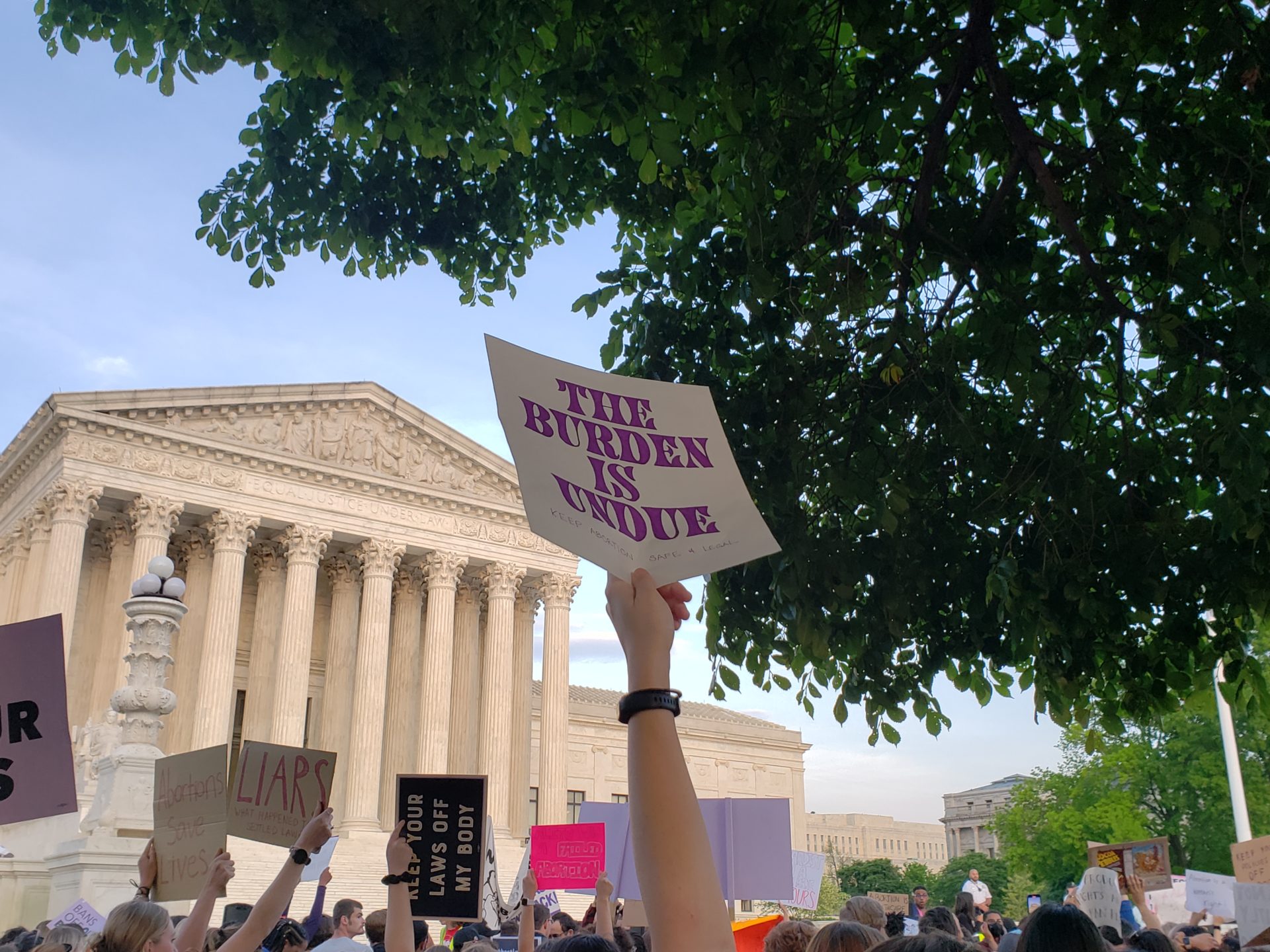The Supreme Court Is Egregiously Wrong in Its Draft Opinion
Written by Dara E. Purvis, JD | Published: June 21, 2022

The world was rocked the evening of May 2, when a draft opinion in Dobbs v. Jackson Women’s Health Organization overturning Roe v. Wade was leaked to Politico. The draft is not a surprise, but Justice Samuel Alito’s opinion is a broad attack on privacy rights in ways that reach far beyond abortion. The implications are staggering for reproductive justice, women’s rights, and LGBTQ equality.
Alito pulls no punches in his condemnation of Roe, which he calls an “abuse of judicial authority” and “egregiously wrong from the start.” Roe held that abortion is part of the 14th Amendment’s guarantee that the government shall not “deprive any person of life, liberty, or property, without due process of law.” Reversing this means that in the future, laws regulating or banning abortion would be evaluated using a test called rational basis review. This is the lowest level of scrutiny and means that the person challenging the law must prove that a statute has no rational relationship to a legitimate government goal. Alito further says “respect for and preservation of prenatal life at all stages of development” is a legitimate government goal, so abortion restrictions will only be struck down under his logic if a judge cannot imagine a rational link between the law in question and prenatal life. For obvious reasons, this will be a near-impossible hurdle to clear.
Alito’s opinion is only a draft, and justices could change their votes before it is final. It seems likely that the prospect of such a switched vote motivated the leak. If Alito’s opinion remains the decision of the Court, as seems likely, it will have both immediate and far-reaching effects.
Most immediately, the moment Roe is reversed, about half of U.S. states will criminalize abortion, either through pre-Roe laws that were never taken off the books, post-Roe “trigger laws” written to snap into place if Roe were ever reversed, or modern laws currently being challenged under Roe. Some of those states are also experimenting with more creative and harsher ways to keep their residents from obtaining abortions, enabling private citizens to sue anyone who helps someone access such care. Some states are even toying with extending such lawsuits to suing people in other states if pregnant people have to cross state lines to terminate their pregnancies. There are also rumblings of federal legislation banning abortion nationwide after the 2022 midterm elections.
New abortion restrictions would likely reach into other areas of reproductive health care as well. Some proposed abortion bans define “unborn life” as beginning at fertilization rather than implantation. This would encompass not only all healthy pregnancies, but also ectopic pregnancies, in which a fertilized egg implants outside of the uterus. Banning abortions after fertilization would bar the only treatment for ectopic pregnancies, which are incredibly dangerous—they are the leading cause of death in the first trimester and cause 10 percent of all pregnancy-related deaths. Defining life as starting at fertilization would also ban a wide swath of birth control methods, such as Plan B, IUDs, and birth control pills. In vitro fertilization (IVF) would also be placed at risk, as fertility clinics retrieve and fertilize multiple eggs at one time, freezing and storing embryos that would be considered legal persons. Because extra unused embryos are stored, destroyed, or donated to medical research, defining them as “unborn life” would complicate and potentially bar IVF services.
Finally, Alito’s opinion has frightening implications for other rights relating to personal privacy and liberty. The Supreme Court has explained liberty in past decisions as rights that are “deeply rooted in this Nation’s history and tradition.” If you are a liberal judge who believes that the Constitution expresses principles that can be broadly applied to modern topics, it seems straightforward to say that individual choice about when to have children is deeply rooted. How people make that choice looks different today—it might be taking birth control pills, buying condoms over the counter, or getting an IUD inserted, none of which were widely available in the 19th century—but the core right is the same. Conservative justices like Alito, however, would define the liberty right as only covering what “liberty” was understood to mean when the 14th Amendment was ratified in 1868.
By this historical definition, Alito concludes that abortion is not part of the liberty guaranteed by the 14th Amendment. But this also throws serious doubt on how Alito would view other liberty rights. He writes that “[u]ntil the latter part of the 20th century, such a right was entirely unknown in American law.” He is referring to abortion, but that statement is also true about access to birth control, LGBTQ equality, and even interracial marriage. If this language remains unchanged in the Court’s opinion, it signals a green light to conservative activists set on rolling back other hard-won rights.
Dara Purvis is Chair of the Population Connection Action Fund Board of Directors. Dara is a professor at Penn State Law, specializing in family law, feminist legal theory, masculinities, and sexuality and gender identity.


